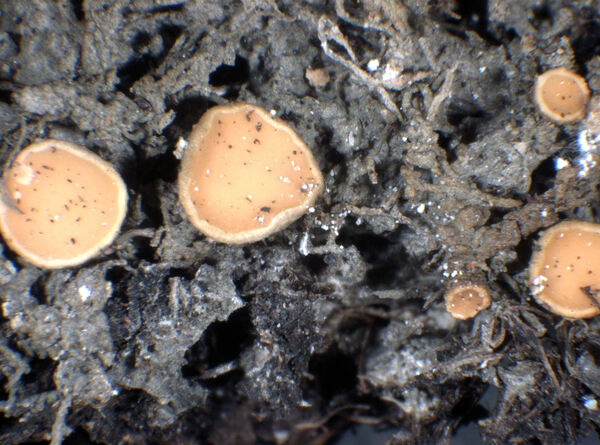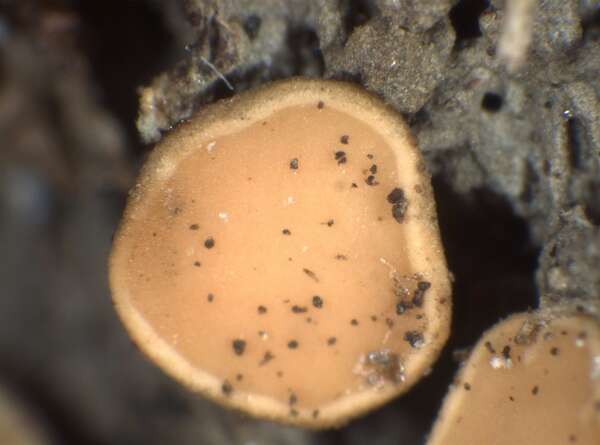Gyalecta friesii Körb.
Syst. Lich. Germ.: 173, 1855.
Synonyms: Gyalecta denudata Th. Fr.; Petractis friesii (Körb.) A. Massal.; Secoliga friesii (Körb.) A. Massal.
Distribution: N - Ven.
Description: Thallus crustose, whitish, pale grey-green or olive-grey, thin, more or less continuous, often granular-farinose. Apothecia without a thalline margin, sessile, strongly constricted at base, (1-)2-4(-5) mm across, with a concave to flat, orange-yellowish disc, and a thick, smooth, somewhat paler proper margin. Proper exciple prosoplectenchymatous, of radiating hyphae, brownish yellow in outer part, colourless within; epithecium colourless to yellowish; hymenium colourless, 80-105 μm high, the hymenial gel I+ pale blue; paraphyses simple to sparingly branched, 1.5-2 μm thick at mid-level, the apical cells to 3 μm wide; hypothecium colourless or pale yellow. Asci 8-spored, cylindrical to elongate-subclavate, thin-walled, the apex without a conical point, the wall K/I+ blue. Ascospores 3-septate, hyaline, narrowly ellipsoid to fusiform, (10-)14-20(-22) x (2.5-)3-4.5 μm. Photobiont trentepohlioid. Spot tests: K-, C-, KC-, P-, UV-. Chemistry: without lichen substances.Note: a circumboreal-montane species growing on bryophytes and plant debris, more rarely on bark of conifers and on siliceous rocks, with optimum near or above treeline.
Growth form: Crustose
Substrata: soil, terricolous mosses, and plant debris
Photobiont: Trentepohlia
Reproductive strategy: mainly sexual
Commonnes-rarity: (info)
Alpine belt: extremely rare
Subalpine belt: extremely rare
Oromediterranean belt: absent
Montane belt: absent
Submediterranean belt: absent
Padanian area: absent
Humid submediterranean belt: absent
Humid mediterranean belt: absent
Dry mediterranean belt: absent

Predictive model
Growth form: Crustose
Substrata: soil, terricolous mosses, and plant debris
Photobiont: Trentepohlia
Reproductive strategy: mainly sexual
Commonnes-rarity: (info)
Alpine belt: extremely rare
Subalpine belt: extremely rare
Oromediterranean belt: absent
Montane belt: absent
Submediterranean belt: absent
Padanian area: absent
Humid submediterranean belt: absent
Humid mediterranean belt: absent
Dry mediterranean belt: absent

Predictive model
 INDEX FUNGORUM
INDEX FUNGORUM
 GBIF
GBIF
 DOLICHENS
DOLICHENS




